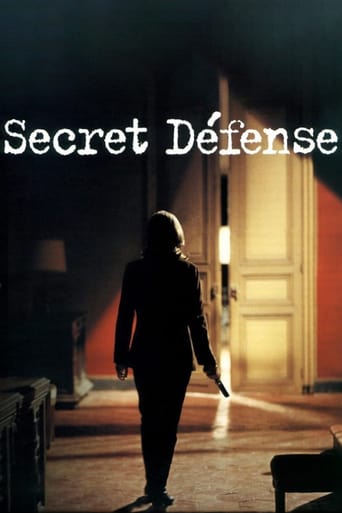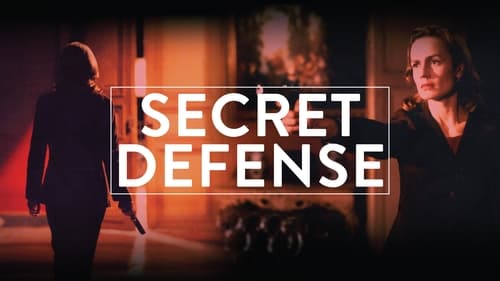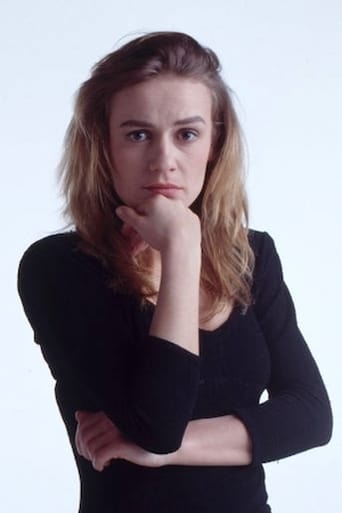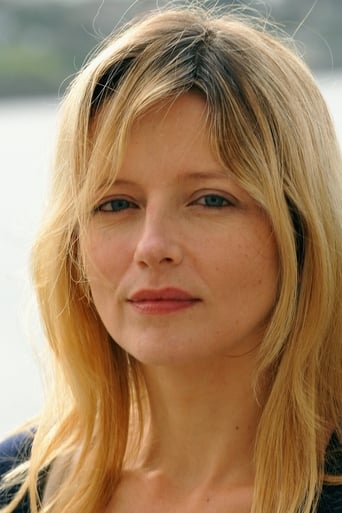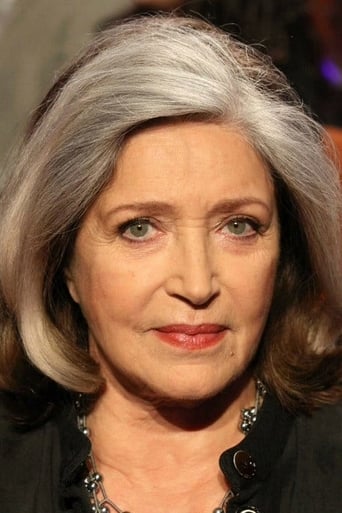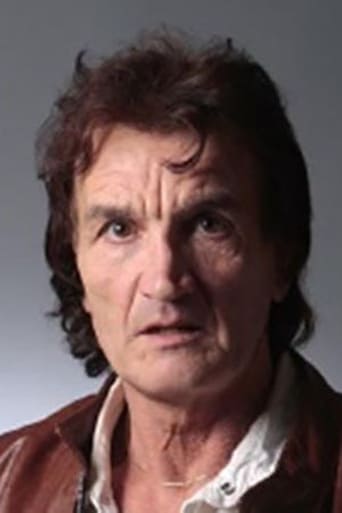Lancoor
A very feeble attempt at affirmatie action
TrueHello
Fun premise, good actors, bad writing. This film seemed to have potential at the beginning but it quickly devolves into a trite action film. Ultimately it's very boring.
Jakoba
True to its essence, the characters remain on the same line and manage to entertain the viewer, each highlighting their own distinctive qualities or touches.
JasonTomes
But let me concede right away that this is a very personal review. "Secret Defense" has many of the characteristics that usually commend a film to me: it is well acted, it is slow, and it is French! Its milieu is the familiar one of the Parisian "haute bourgeoisie"; the smart city apartment and country château are a little hackneyed perhaps, but attractive all the same. The photography is good. The direction is painstaking. It promises to be an intelligent production.To be honest, however, I found it very hard to sustain interest in it, and my mind soon wandered to the question of why it so utterly failed to engage me. I think it is because it is not at all concerned with character or personality. I can readily believe the suggestion made by previous reviewers that the film is modelled to some extent on ancient Greek drama. Sylvie, Paul, Walser, and Veronique are toys of the gods, not believable individuals. Their responses to events lack credibility. The central relationship between Sylvie and Walser never convinced me.It might be argued that the people in "Secret Defense" are simply very cold-blooded. Yet they are hot-blooded enough when it comes to seeking revenge. The film also contains two of the absurdities often noticeable in more popular thrillers: the police simply do not exist in the world depicted, and the characters show no fear and little wariness even when dealing with people whom they suspect of murder.If your preference is for character-driven drama and realism, you are unlikely to find "Secret Defense" a satisfying experience. And it lasts nearly three hours.
oOgiandujaOo_and_Eddy_Merckx
A warning first off that if you have problems with slow tempo in movies you really aren't going to make it to the end of this one, because the tempo here is slooooow.The plot concerns a cellular biologist by profession called Sylvie (Sandrine Bonnaire) and her attempt resolve a mystery concerning the death of her father a decade previously, prime suspect is his business associate Walser (Jerzy Radziwilowicz). The story is a tragedy by structure.Secret défense has been labelled a thriller by some, but verging on three hours and with only enough action to fill a single conventional thriller hour at the most, and that quite tame, your adrenal gland is going to be taking a kip during this movie. Furthermore the elements of the thriller genre are mostly joshed. For example, there's a date-stamped intertitle at the start of the movie that announces that it's Friday May 9th at 10 o'clock, it's the only title of it's kind in the movie and apropos of nothing, cocking a snook at the pointlessness of this genre convention. Action scenes are drained of dramatic impact and woodenly acted, as if they are reenactments or rehearsals. The scenes are pathetic, in that they are designed to make you feel the wretched stupidity and irreversibility of violence. Effects are no more complicated than the old blood capsule in the mouth. The plot seems carelessly anachronistic, hinging around a train murder that makes no sense: unfortunately throwing someone off a TGV and making it seem like an accident, due to modern safety precautions, is slightly less plausible than it would have been in Hitchcock's day. One minor annoyance is that telephone conversations are carried out by obvious voice-over from the voice at the end of the line, which carries no telephonic distortion. Still this is probably conspicuous lack of care.There are two great things going on with the movie though. The first is the simple joy in listening to people speak deeply that characterises the best New Wave films. Just simple things like the admission of the housekeeper Marthe that she never really had a childhood because she was always big inside her head. The second thing is the subtle photography of great New Wave cinematographer William Lubtchansky, who unfortunately passed away earlier this year. The exact allure of his work is hard to point a finger at, there is nothing mannered about his style. He manages threat very well here, just through little things, like having a coach driving up the road behind Sylvie whilst she is walking at night and pulling up in front of her, perfectly normal yet alarming on an animal level, or having trains crash past at the station. Warnings occur as well, a yellow hazard sign in the corner of the screen at the lab, a red warning light on the metro line, used rather than placed, all very natural. The value is often more to do with absence than anything else, I never saw anything in the movie that was visually inappropriate, that didn't feel right, Lubtchansky seems to have a feeling for what fits, for what works, an organic economy and a lack of extravagance that filled me with slow-burn joy. My favourite shot perhaps was in the mansion, where Sylvie walks through a gloomy room towards the garden and becomes silhouetted from behind, a sign perhaps of the darkness enveloping her. I also liked the psychological significance of the landscape backgrounds during train scenes, Sylvie full of clarity and deadly intent travels to the visual accompaniment of flat verdant blur; later with her mother the speed is slower, the landscape cluttered with a sprawling carpet of white buildings, disorganised, encumbering, again images used not forced.It's a movie perhaps about folly perhaps. Sylvie ignores the patient wooing of an urbane work colleague to concentrate on raking up the past. Both Sylvie and Walser are slaves of their work. A note to all plate-spinners: the plates will carry on spinning without you! The one constant of any large organisation is the superfluity of absolutely any individual. Incidentally Sylvie's work world was rendered quite well, back at university I used to do lab work in a cellular biology lab, Sylvie was there using a Gilson's pipette correctly and expelling the tips, which was quite nostalgic for me. According to the credits the scenes were actually shot in the labs of the Institut Pierre et Marie Curie in Paris.The soundtrack consists of only two songs which play over the start and end of the credits, one piece is by Spanish Renaissance composer Pedro Guerrero and is a "moresca" called "Di, perra mora", "Variation: Moorish whore" the other an anonymous piece also from the same era "Diferencias sobre las Vacas", or "Cow variations". Morescas were grotesque foolish dances where the dancers often posed as blacked-up Moors. I think the implication is that we're seeing some sort of timeless farce, with the characters condemned to repeat foolish steps, despite the presence of reason.
quelperso
For a start, it's not as boring, stale and jejune as Greek mythology. Really not up to Out 1, Merry-Go-Round, etc., but definitely a nice watch.However, someone has posted a comment making this movie "a modern Electra". That's not true. Of course, Electra must have been very much in Rivette's mind when conceiving the script. But the influences are far richer than just the Electra myth, and Rivette presents a much more subtle story than just a modern Electra. The most significant difference might be the motif for the murder of the father. Agamemnon was not murdered for noble reasons (as th father in the movie), but because Clytemnestra had an affair and wanted to get rid of him. This takes us away from the primitive Greek "A sleeps with B's C", "C's D therefore kills B and A's E", but then "E's F tries to sleep with A and F's G before killing himself, but fails to kill C" etc. Of course, we never learn in the movie where the brother got the photo (which reminds one of the oracle telling Electra's brother to get a revenge for the murder of their father), but then again, all the stuff about shooting the wrong person has nothing to do with the story of Electra. Well, notice the complete lack of intervention by the gods (in this case, mostly Appolo and Athena) in the movie; once again, something without which a Greek myth isn't a Greek myth anymore. Also, the nice twist at the end of the movie - Sylvie getting shot herself, again by accident - has no counterpart in the Greek myth. The story of the real Electra actually ends sort of well after Orest is found not guilty by the judges.On the side: The story of Electra can only be told faithfully if there is a story of a war in the background. Well, in the movie there isn't.So, please... It's really nice for some people that they are oh-so-cultivated. But they should either come up with a subtle analysis of the links between a modern script and some Greek (or otherwise classical) subject, or leave it.Anyway, having read the comment which turns "Secret Défense" into a remake of Vertigo, I should have to apologize. At least Electra clearly is intended reference/source of inspiration... whatever. On the other hand, the comparison with Vertigo and the comparison of Vertigo to Greenaway's "Cook, Thief, Wife, Lover" is so far fetched you cannot even see where the commentator got the idea. I've noticed the tendency of some (mostly Americans) to think of Hitchcock as the center of the cinematographic universe. Let me tell you: He isn't. He has made some entertaining films, but they are mostly based on overacted simplistic scripts, which fake psycho-grammatic depth but really just display simple psychologically prototyped characters.About the title of "Secret Défense". Those (non-native speakers of French) who are wondering about the strange ordering of adjective and noun in the title in French should go here: http://fr.wikipedia.org/wiki/Information_classifi%C3%A9e_en_France In this light, it is of course stupid of the US distributor to call the film "Secret Defense" in English - because that, as far as I can judge, means something completely different (i.e., it just has its literal meaning in English).
Ekki-2
Modern version of the Elektra-myth, keeping rather close to the original (if you look closely), but making sense, in the typical Rivette way, also as a wild story of crime, revenge and love apart from the myth. Sandrine Bonnaire alone is worth the film.
